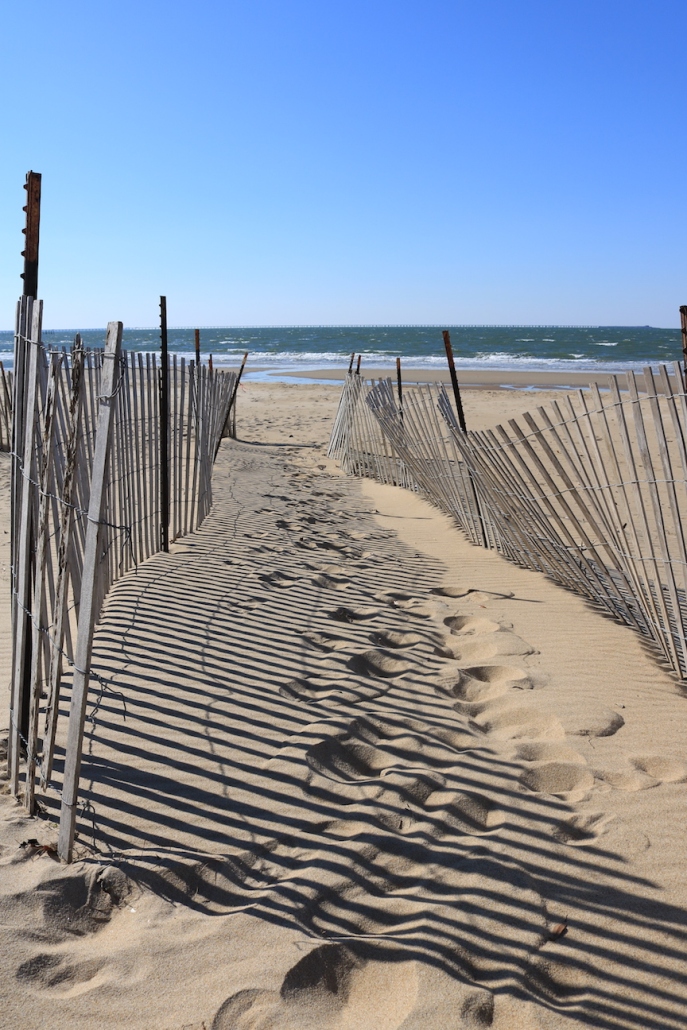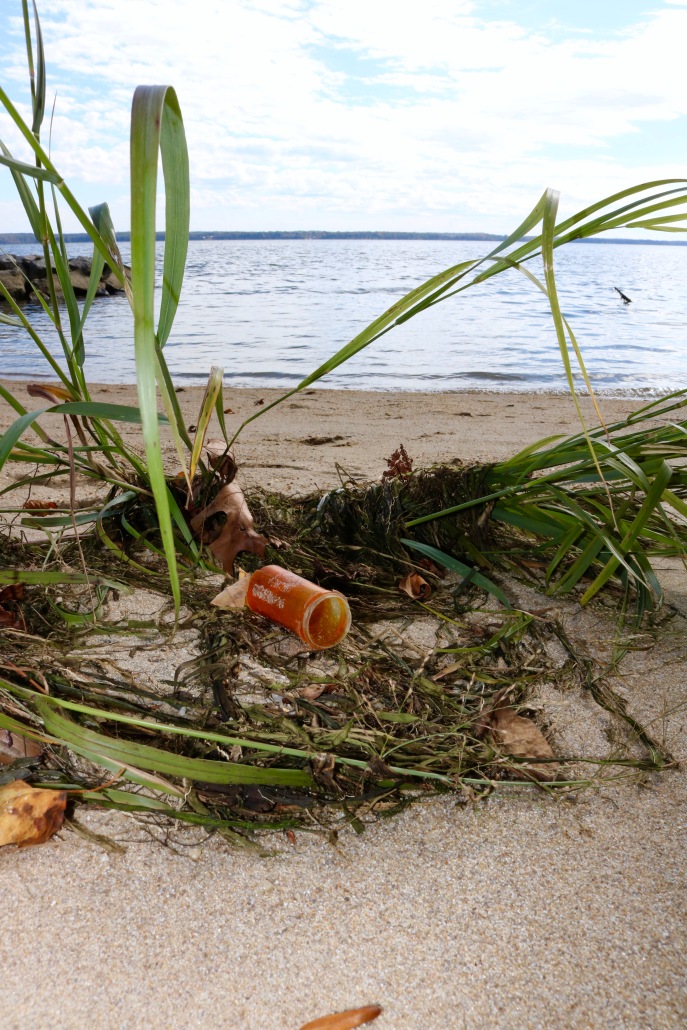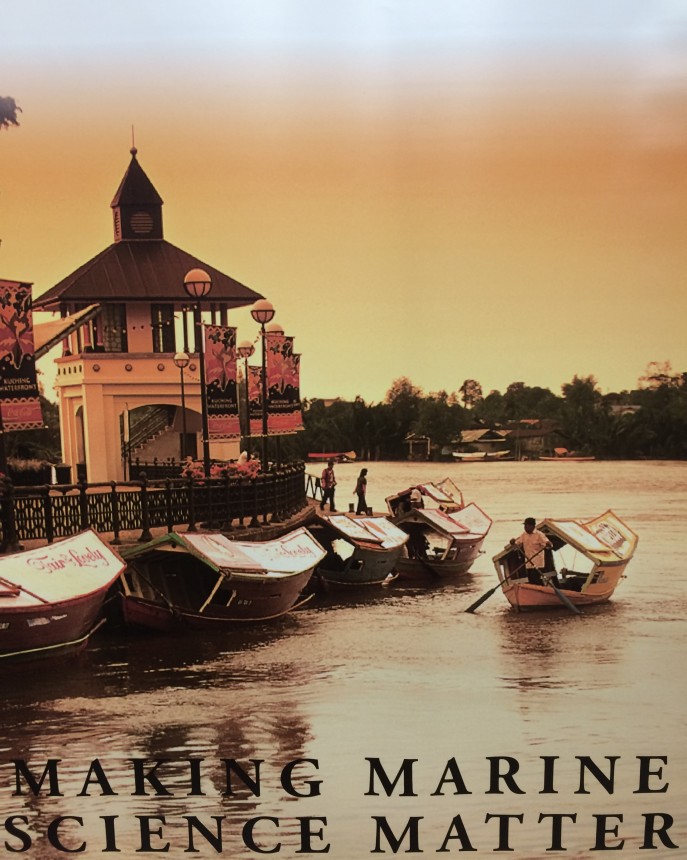By Chelsea Gray
Everyone loves the sea. Each year, millions of people all over the world flock to sandy beaches. When digging toes into the warm sand, listening to the waves crash over the ocean, how may people feel connected to the ocean? And how many people take that connection home with them, often far from the coast, and impossibly far from the open sea?
Our connection to the sea, no matter how far inland we may live, runs deep. Snow from the mountain tops melts, running off our roads and lawns into rivers, before eventually emptying out to the sea. With much of that run off comes pollutants, chemicals from our pesticides and sediment from agriculture. These pollutants threaten our health and fisheries, as cans of tuna line grocery store shelves.

The ocean has the power to transfix us; It lets us realize our deep connections to nature through its power and beauty. (© Chelsea Gray)
While we frequently hear that the ocean is polluted, many people do not realize that 80% of those pollutants come from the land. It comes in small doses, from our cars and our gardens. The number one source of oil pollution in the water does not come from oil spills, but from small oil leaks from millions of cars, carried by our local rivers to the coast.
Because marine pollution originates from such diverse and often small sources, it is a problem not just for marine scientists, but for society as a whole. While terrestrial scientists can frequently focus on a single area or ecosystem, marine scientists don’t have that luxury, and frequently find themselves navigating complex systems of land, sea, and policy.

Plastic is one form of pollution that can have a large negative impact on ocean life we rely on in so many ways. Fixing this problem is a challenge for everyone! (©Chelsea Gray)
Cleaning up the ocean requires commitment from all individuals, academic and non-academic alike. Because of this, non-academics can benefit from talking and interacting with marine scientists, and what better play for that then the 5th International Marine Conservation Congress (IMCC5)?
But what kind of non-academics could benefit?
Anyone who cares about the environment! But more specifically, teachers would gain a lot from IMCC5. For starters, the conference is dedicated to representing women in STEM, which will allow teachers to show examples of real life female scientists to young women. But also, being aware of the latest trends in marine science will help teachers prepare students to enter the world as conscientious citizens, even if their students do not end up in science.
Journalists are another group of non-academics who could benefit from IMCC5. There has been a decrease in the amount of journalists who can provide quality science journalism to the public. As marine conservation is dependent on society as a whole, journalists who can spread the word about the most recent research and recommendations are indispensable. Connecting with and forming lasting relationships with current marine scientists will give journalists points of contact to explain, expand on, or interpret the latest scientific discoveries, and offer evidence based strategies for decreasing pollution in our daily lives.
It should go without saying how those who work in the policy realms, such as NGOs, can benefit from IMCC5. Marine conservation intersects with food security (fisheries science), ecotourism, and yes, even our beach vacations. NGOs frequently navigate more than just one realm, combining law, policy, and science, a challenge that many marine scientists are more then familiar with. Creating strategies that address environmental issues, and their inevitable social ramifications, will allow NGOs to operate more effectively.
Of course, anyone with an interest in marine science and conservation is more then welcome to attend. As global citizens, we all have a hand in creating or preventing ocean pollution. We hope to see you all, no matter your profession, with us in Kuching this June for IMCC5!

Chelsea Gray is pursuing her MS degree in Environmental Science and Policy at George Mason University, where she plans to study public perceptions of shark tourism. She currently works at the Potomac Environmental Research and Education Center as an outreach assistant and plankton counter. You can find more of her writing and video creations here!
